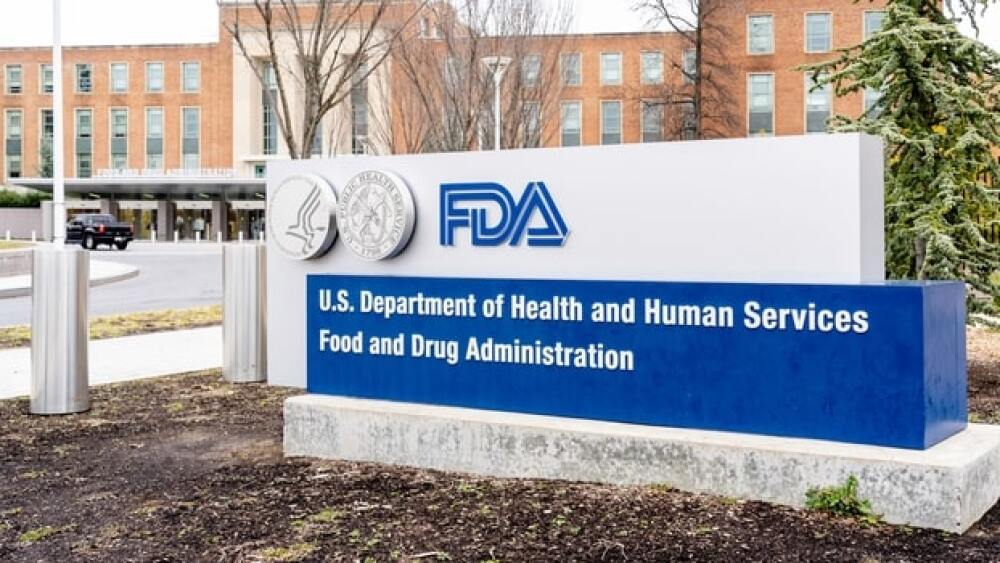The Dutch company Xenikos B.V. announced that the U.S. Food and Drug Administration has approved an investigational new drug application to initiate a U.S.-based clinical Phase 3 registration trial in order to test the efficacy of T-Guard for treating steroid-refractory acute graft-versus-host disease in patients following allogeneic stem cell transplantation.
Nijmegen, the Netherlands, June 11, 2019 – The Dutch company Xenikos B.V., which develops innovative immunotherapies for treating patients with severe immune disease and post-transplant rejection, announced today that the U.S. Food and Drug Administration (FDA) has approved an investigational new drug (IND) application to initiate a U.S.-based clinical Phase 3 registration trial in order to test the efficacy of T-Guard for treating steroid-refractory acute graft-versus-host disease (SR-aGVHD) in patients following allogeneic stem cell transplantation.
This single-arm, multi-center Phase 3 trial (BMT CTN 1802) is designed to evaluate the efficacy and safety of T-Guard in 47 patients who receive an allogeneic stem cell transplantation and subsequently develop SR-aGVHD. The primary endpoint of the study will be the complete response rate at day 28, and key secondary endpoints will include the duration of complete response and overall survival rate at six months.
“Receiving FDA approval to initiate our U.S. Phase 3 registration trial is a major milestone for us, as it is the next step in advancing T-Guard towards the market,” says Dr. Ypke van Oosterhout, Chief Executive Officer of Xenikos. “Importantly, T-Guard can be administered as a single one-week treatment and was previously shown to promote swift restoration of the immune system, potentially reducing the risk of future infection and relapse. Effective therapies for treating patients with SR-aGVHD are urgently needed, and we believe that T-Guard has the potential to be an important addition to the medical arsenal available for treating patients with this devastating and potentially fatal condition.”
The trial will be conducted in the U.S. by the Blood and Marrow Transplant Clinical Trials Network (BMT CTN), funded by the National Heart, Lung, and Blood Institute (NHLBI) and the National Cancer Institute (NCI), which are co-funding the trial. Drawing on its vast network of leading transplant centers throughout the U.S., the BMT CTN is expected to be able to quickly recruit patients for the trial, thereby helping bring T-Guard to market as quickly as possible.
Dr. Gabrielle Meyers, Study Co-Chair, asserts, “The BMT CTN is the only U.S. clinical trial group focused on improving outcomes for transplant recipients. For many years few studies were conducted for steroid-refractory GVHD due to the difficulty in treating this challenging patient population. We are excited about the opportunity to work with Xenikos to bring novel therapies to benefit patients in greatest need.”
Study Co-Chair Dr. John Levine notes, “Steroid-refractory GVHD is the driver for non-relapse deaths after allogeneic HSCT. Poor immune reconstitution and the resulting infections are major contributors to the high mortality. T-Guard’s novel mechanism of action that preferentially targets activated T cells has shown rapid immune recovery and high response rates. This collaboration with the BMT CTN will hopefully develop the confirmatory evidence needed to move T- Guard towards FDA approval.”
T-Guard: Helping reset the body’s immune system
T-Guard is designed to safely and swiftly reset the body’s immune system in life-threatening T cell‒mediated conditions, including transplant-related rejection, acute solid-organ rejection, and severe autoimmune disease. T-Guard consists of a unique combination of toxin-conjugated monoclonal antibodies that target CD3 and CD7 molecules on T cells and NK cells. Preclinical and early clinical testing have shown that T-Guard can specifically identify and eliminate mature T cells and NK cells with minimal treatment-related side effects. Importantly, T-Guard’s action is short-lived, thereby significantly reducing the patient’s vulnerability to opportunistic infections compared to currently available therapies. Xenikos successfully completed a Phase 1/2 study for the second line treatment of SR-aGVHD in patients following hematopoietic stem cell transplantation (HSCT). The results of this study showed that just one week of T-Guard treatment triggered a strong clinical response and doubled the 6-month overall survival rate. These results were published in the peer-reviewed journal Biology of Blood and Marrow Transplantation. In addition to receiving IND clearance in the U.S., T-Guard has also been granted Orphan Drug Designation status in both the E.U. and the U.S.
Notes to the editor:
About acute graft-versus-host disease
Following an allogeneic stem cell transplantation, most patients have a high risk of developing graft-versus-host disease (GVHD), and this risk increases considerably in older patients. With GVHD, donor’s immune cells attack the patient’s normal cells. Acute GVHD occurs early after transplantation and can be relatively mild or quite severe, even becoming life-threatening if not controlled. Although GVHD can often be treated successfully with steroids, there are limited options available once the disease progresses or becomes resistant to steroid treatment, and the long-term survival of patients with steroid-refractory acute GVHD is only 20%, highlighting the urgent need for effective therapies to improve patient outcomes.
About Xenikos B.V.
Xenikos develops innovative new immunotherapies based on conjugated antibodies. This novel therapeutic approach helps reset the immune system in patients who have a severe immune disease or developed post-transplantation rejection. Xenikos’ flagship product, T-Guard®, is now ready to enter Phase 3 testing for the second-line treatment of steroid-refractory acute graft-versus-host disease (SR-aGVHD) in patients following hematopoietic stem cell transplantation.
For more information, visit us at www.xenikos.com.
Follow us on LinkedIn.
About BMT CTN
The Blood and Marrow Transplant Clinical Trials Network (BMT CTN) conducts rigorous multi-institutional clinical trials of high scientific merit, focused on improving survival for patients undergoing hematopoietic cell transplantation and/or receiving cellular therapies. The BMT CTN has completed accrual to 40 Phase II and III trials at more than 100 transplant centers, and enrolled over 10,700 study participants.
BMT CTN is funded by the National Heart, Lung, and Blood Institute and the National Cancer Institute at the National Institutes of Health (NIH) and is a collaborative effort of 20 Core Transplant Centers/Consortia, The Center for International Blood and Marrow Transplant Research (CIBMTR), the National Marrow Donor Program (NMDP)/Be The Match as well as the Emmes Company, LLC, a clinical research organization. CIBMTR is a research collaboration between the NMDP/Be The Match and the Medical College of Wisconsin.
More information about the BMT CTN can be found at www.bmtctn.net.
For further information, please contact:
| Corporate contact: | Media contact: |
| Xenikos B.V. Ypke van Oosterhout, PhD Chief Executive Officer Phone: +31 24 3000100 Mobile: +31 6 11017611 Email: y.vanoosterhout@xenikos.com | MC Services AG Phone: +49 211 529 252 19 |
| For U.S. inquiries: Phone: +1 339 832 0752 |




